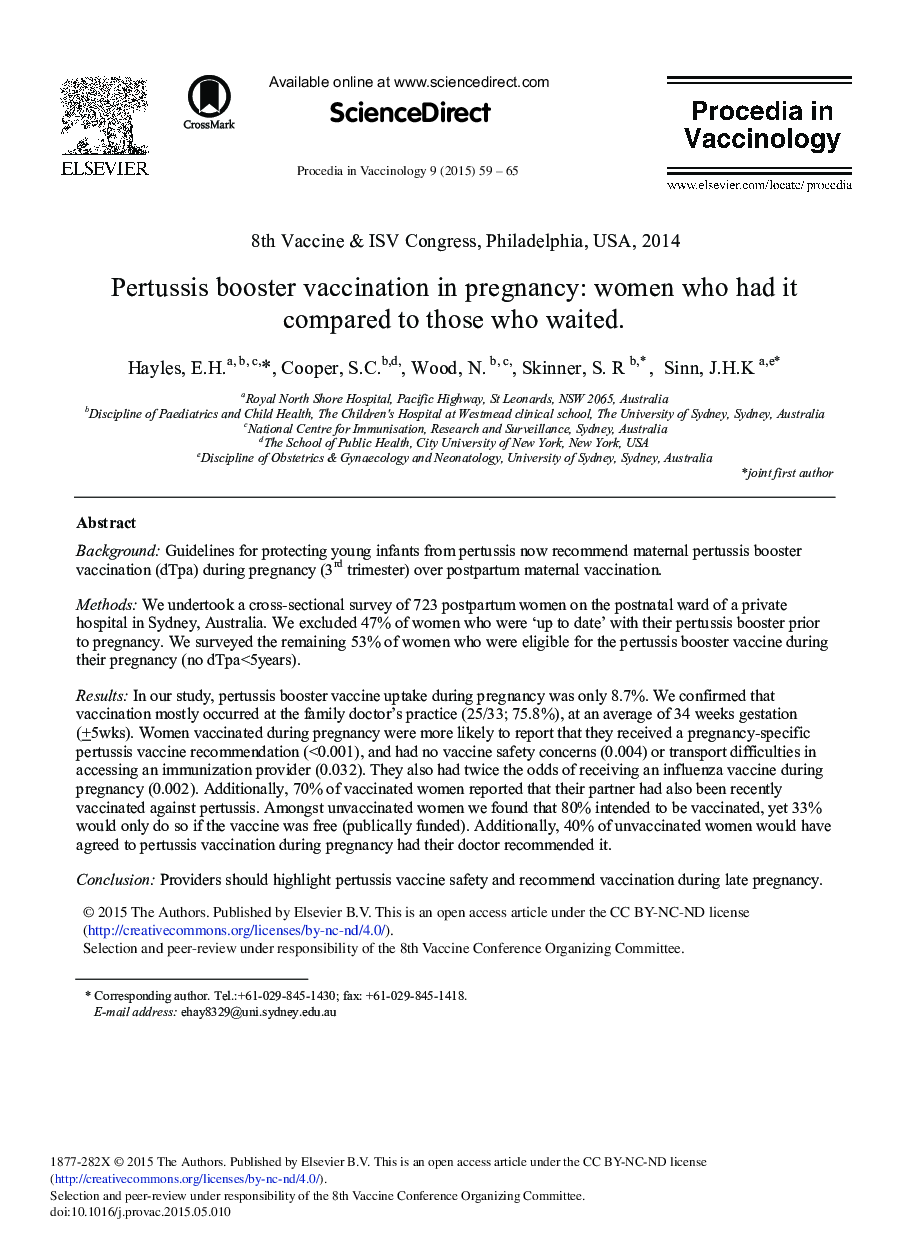| Article ID | Journal | Published Year | Pages | File Type |
|---|---|---|---|---|
| 2473699 | Procedia in Vaccinology | 2015 | 7 Pages |
BackgroundGuidelines for protecting young infants from pertussis now recommend maternal pertussis booster vaccination (dTpa) during pregnancy (3rd trimester) over postpartum maternal vaccination.MethodsWe undertook a cross-sectional survey of 723 postpartum women on the postnatal ward of a private hospital in Sydney, Australia. We excluded 47% of women who were ‘up to date’ with their pertussis booster prior to pregnancy. We surveyed the remaining 53% of women who were eligible for the pertussis booster vaccine during their pregnancy (no dTpa < 5years).ResultsIn our study, pertussis booster vaccine uptake during pregnancy was only 8.7%. We confirmed that vaccination mostly occurred at the family doctor's practice (25/33; 75.8%), at an average of 34 weeks gestation (±5wks). Women vaccinated during pregnancy were more likely to report that they received a pregnancy-specific pertussis vaccine recommendation (<0.001), and had no vaccine safety concerns (0.004) or transport difficulties in accessing an immunization provider (0.032). They also had twice the odds of receiving an influenza vaccine during pregnancy (0.002). Additionally, 70% of vaccinated women reported that their partner had also been recently vaccinated against pertussis. Amongst unvaccinated women we found that 80% intended to be vaccinated, yet 33% would only do so if the vaccine was free (publically funded). Additionally, 40% of unvaccinated women would have agreed to pertussis vaccination during pregnancy had their doctor recommended it.ConclusionProviders should highlight pertussis vaccine safety and recommend vaccination during late pregnancy.
